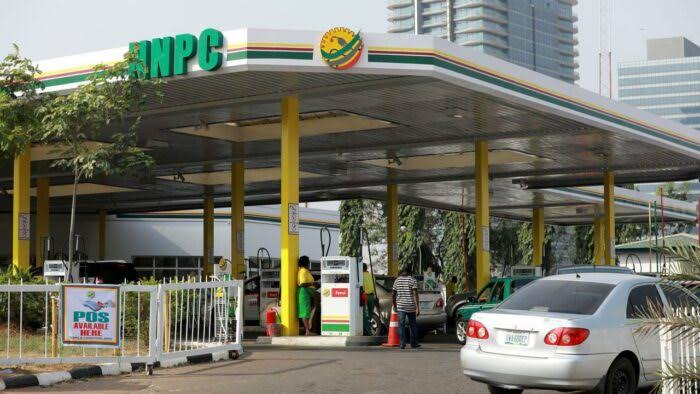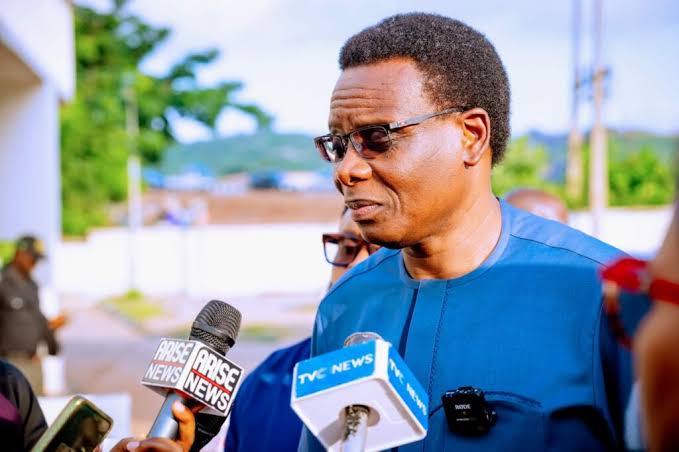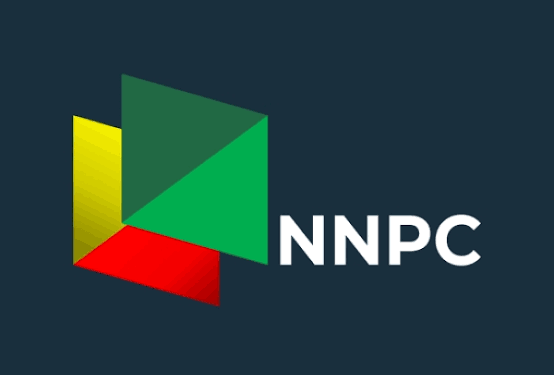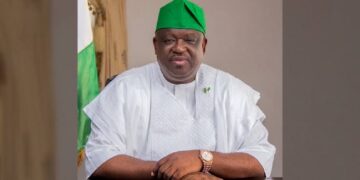The Nigerian National Petroleum Corporation Limited (NNPCL) yesterday announced that it is working hard to address the current petrol scarcity across the country.
NNPC Executive Vice President for Downstream Operations, Dapo Segun, also blamed the current shortages on foreign exchange liquidity, distribution challenges and the need to balance imports and existing debt.
Segun made the comments in an interview with Arise News TV.
Segun said the NNPCL is actively working to resolve the supply scarcity, but did not give a specific timeline for clearing long queues at petrol stations.
He stressed that a significant challenge in the market is the unwillingness to let market forces dictate prices.
Segun said: “First, we have conditions that affect our ability to distribute fuel efficiently. We do have a constraint of FX illiquidity. And when you have that situation, you have to strike a very fine balance between the size of your debts and the volume of products that you import.

“It wouldn’t make sense to import so much more than you can reasonably and create a situation where your debts become unserviceable. So it’s a fine balance that we have to draw between those two, between those two – the size of the volume of PMS that we import and the size of our payables that’s mainly driven by FX liquidity.”
He added that suppliers are confident that they will pay even if they have debts, stressing that NNPCL has good business relationships with all its foreign customers.
Segun explained: “We have a good relationship with our suppliers. And as we speak, we don’t have a problem with the supplies coming in. We do have a challenge with payments, and that’s largely due to the fact that there is some FX illiquidity, as it’s obvious, and that’s really is the challenge.
“As much as we are able to, we are making payments to them and talking about the debts. I wouldn’t want to go into that issue, but yes, there is a debt. There may have been a denial of the exact amount that was posted in the media.
“Yes, there is a debt. It’s not news to anyone, but we’re doing all we can to make sure that we retain the confidence of our suppliers, and I can assure you that our suppliers have confidence in our ability to pay.
“NNPC has never defaulted in making its payments, and that’s why suppliers continue to back us up.
“The good thing also is that we have Dangote refineries coming up with production, as it’s been announced, and that will also provide a source of supply into the country.”
He explained that as a testament to its goodwill, the NNPCL has supplied over 30 million barrels of crude oil to the Dangote refinery in the past and 17.6 million barrels will be made available within the next few months.
Segun explained: “We have provided over 30 million barrels of crude oil to Dangote refineries so far. This month alone, we will be providing 6.3 million barrels of crude oil to Dangote refineries in seven cargos, and in October, we’ll be providing another 11.3 million barrels of crude oil to Dangote refineries in 13 cargos. So we’re doing everything we can to make sure that this situation abates as soon as possible.”

He added that Section 205 of the Petroleum Industry Act (PIA) states that fuel prices should be determined by free market-based conditions.
Segun said that while the government can intervene with measures if it deems appropriate, a sustainable approach is to allow free market prices for gasoline.
He said, “In section 205 of the PIA, it should be free markets, unrestricted market-based conditions. Government policy would come in, and that happens as the government would deem to bear some of that, where the government deems it necessary.
“What is sustainable is the unrestricted free market pricing of PMS. That way competition takes over, and Nigerians will get it better.”
He did not give any timeline for the fuel market queues to clear or for NNPCL refineries to start production, stressing that predictions can always be wrong.
Segun said: “Even when you give projections, projections are at best estimates at any time. And if you look at even the best analysts in the world, when they give their projections, they put a disclaimer there and say, this is subject to change. There’s a limit to how much into the future you can see.”
Similarly, Segun told TVC News’ “Journalists Hangout” that NNPCL favors supply and demand driven pricing over government intervention. He said, “The market has been deregulated, meaning that petrol prices are now determined by market forces rather than by the government or NNPC. Additionally, the exchange rate plays a significant role in influencing these prices.”
On the commencement of petrol supply from the Dangote refinery, Segun said NNPCL is waiting for the September 15 schedule provided by the refinery.
Segun said no one in their right mind would be happy with the current fuel shortage, adding that NNPCL has about 1,000 petrol stations across the country and is working with marketers to ensure that petrol stations open earlier and close later.
Dangote Industries yesterday denied reports that NNPCL had started supplying its 650,000 barrels per day refinery. The state-run oil company said it was yet to start supplying the facility. Dangote Group also refuted reports that the company was selling petrol at 897 naira per litre.
Dangote Group Group Chief Branding and Communications Officer Anthony Chiejina made this known in a statement.
Chiejina said the question of fixing the price of petrol drawn from the refinery does not arise as the group has not finalised an agreement with NNPCL for the withdrawal of petrol from the plant.
He said: “We would like to state that NNPC has not commenced lifting of refined Premium Motor Spirit (PMS), commonly known as petrol, from our Dangote Petroleum Refinery. Therefore, the issue of fixing the price of petrol lifted from our refinery does not arise, as we are yet to finalise our contract with NNPC
“The PMS market is strictly regulated, which is known to all oil marketers and stakeholders in the sector, hence, we cannot determine, fix, or influence the product price, which falls under the purview of relevant government authorities.”
Chiejina further said, “We urge the public to disregard the headline, as it is misleading and does not represent the true position in this matter.
“We are guaranteeing Nigerians of exceptionally high quality petroleum products that will be readily available all over the country.”
The NNPCL on Tuesday increased the pump price of petrol from the official price of N617 per litre to N897, but dealers have increased the price by N930 to N950 per litre or even more in some places.
































